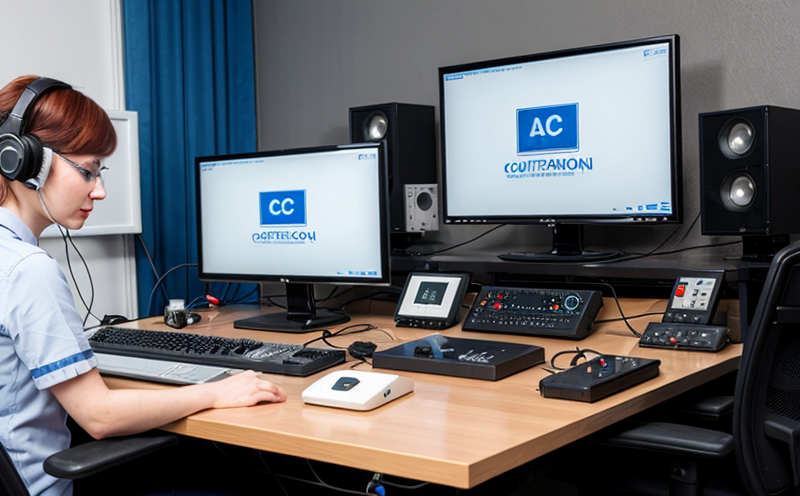Automation and Control Systems Certification: A Comprehensive Guide
In todays rapidly evolving industrial landscape, automation and control systems play a vital role in ensuring efficiency, productivity, and safety. With the increasing complexity of these systems, certification has become an essential requirement for professionals working in this field. In this article, we will delve into the world of automation and control systems certification, exploring its importance, benefits, and requirements.
What is Automation and Control Systems Certification?
Automation and control systems certification is a process that verifies an individuals expertise and knowledge in designing, installing, operating, and maintaining automation and control systems. These systems are used to monitor, control, and optimize various industrial processes, including manufacturing, power generation, water treatment, and more.
The primary goal of automation and control systems certification is to ensure that professionals working with these complex systems have the necessary skills and knowledge to:
Design and implement efficient automation solutions
Troubleshoot and resolve issues in a timely manner
Optimize system performance and minimize downtime
Ensure safety and compliance with industry regulations
Benefits of Automation and Control Systems Certification
Obtaining certification in automation and control systems offers numerous benefits, including:
Enhanced Career Opportunities: Certified professionals are highly sought after by employers, as they demonstrate a level of expertise and commitment to their field.
Increased Earning Potential: Certified individuals can command higher salaries and bonuses due to their specialized knowledge and skills.
Improved Job Security: In an increasingly competitive job market, certification can be a differentiator, providing a competitive edge in securing employment or advancing in ones career.
Compliance with Industry Regulations: Many industries require certified professionals to ensure compliance with safety and regulatory standards.
Key Certifications in Automation and Control Systems
Several organizations offer certifications in automation and control systems, including:
Certified Automation Professional (CAP): Offered by the International Society of Automation (ISA), this certification is designed for professionals working in automation design, installation, and operation.
Control System Engineer (CSE): Provided by the IEEE Industry Applications Society (IAS), this certification focuses on control system engineering principles and practices.
Certified Control Systems Technician (CCST): Offered by the International Association of Control Engineers (IACE), this certification is geared towards technicians working with control systems.
Detailed Information on Certification Programs
Here are two detailed paragraphs in bullet point format, providing additional information on certification programs:
Certification Requirements and Process
To become certified, professionals typically need to meet certain requirements, including:
Education: A bachelors degree or higher in a relevant field (e.g., electrical engineering, computer science)
Work Experience: Minimum work experience in automation and control systems (varies by certification program)
Training and Education: Completion of specific training courses or programs approved by the certifying organization
Exam Preparation: Study materials and exam preparation resources are usually provided by the certifying organization
The certification process typically involves:
Application Submission: Submitting an application, including required documentation and payment fees
Examination: Passing a written examination that tests knowledge and skills in automation and control systems
Continuing Education Requirements: Meeting ongoing education requirements to maintain certification status
Certification Renewal and Continuing Education
To maintain certification status, professionals must adhere to continuing education requirements, which typically include:
Coursework Completion: Completing specific courses or training programs approved by the certifying organization
Workshop Participation: Participating in industry workshops, conferences, or seminars related to automation and control systems
Professional Development Activities: Engaging in activities that promote professional growth, such as mentoring, publishing, or presenting research papers
QA Section: Additional Details on Automation and Control Systems Certification
1.
What is the average cost of certification?
The cost of certification varies depending on the certifying organization and specific program. However, expect to pay between 200-1,000 for initial certification fees.
2.
How long does it take to become certified?
Certification timelines vary depending on individual circumstances. Generally, it takes several months to a year or more to prepare for and pass the certification exam.
3.
What are the benefits of obtaining multiple certifications?
Obtaining multiple certifications demonstrates expertise in various areas and can lead to increased earning potential, improved job security, and enhanced career opportunities.
4.
Can I self-study for certification exams?
Yes, many certifying organizations provide study materials, online courses, or other resources to aid in preparation for the exam.
5.
How often must certifications be renewed?
Certification renewal requirements vary by organization and program. Typically, certifications need to be renewed every 3-5 years to maintain current status.
6.
Are there any prerequisites for certification programs?
Yes, most certifying organizations require a bachelors degree or higher in a relevant field, along with work experience in automation and control systems.
7.
What is the difference between certification and licensure?
Certification demonstrates expertise and knowledge in a specific area (e.g., automation and control systems), whereas licensure typically requires passing an examination to demonstrate competence in a particular profession or trade.
8.
Can I use my experience as a substitute for formal education or training?
In some cases, certifying organizations may accept prior work experience as a substitute for formal education or training. However, this is usually subject to review and approval by the organization.
9.
How can I find certification programs that align with my career goals?
Research organizations like ISA, IEEE IAS, and IACE, which offer certifications in automation and control systems. Review program requirements, fees, and exam content to ensure alignment with your career objectives.
10.
What are the potential consequences of failing a certification exam?
Failing a certification exam may require retaking the examination or completing additional coursework or training before reapplying for certification.
In conclusion, automation and control systems certification is essential for professionals working in this field, providing enhanced career opportunities, increased earning potential, and improved job security. By understanding the benefits, requirements, and key certifications, individuals can take the first step towards obtaining this valuable credential.

































